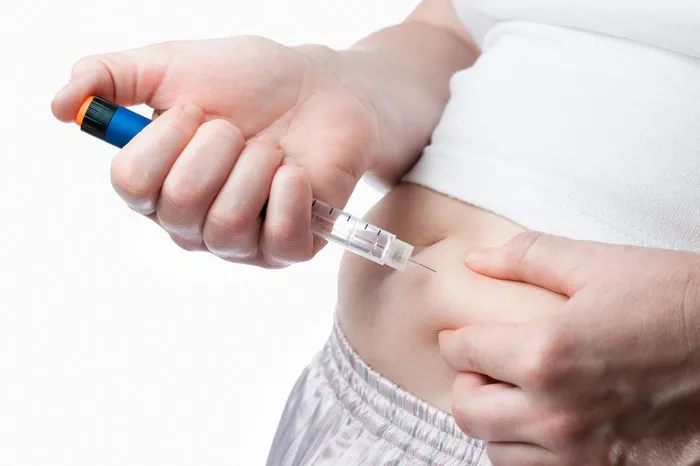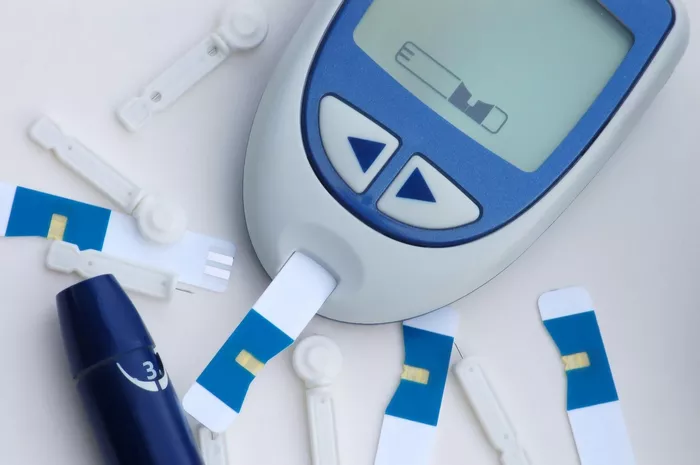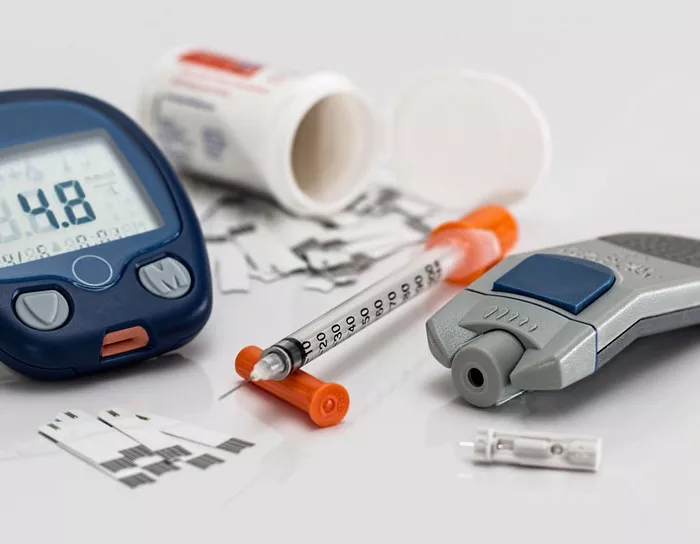The pancreas, a vital organ nestled deep within the abdomen, plays a pivotal role in regulating blood sugar levels and maintaining metabolic balance in the body. Dysfunction of the pancreas can lead to various metabolic disorders, with diabetes mellitus being one of the most prevalent and well-known conditions. In this article, we will explore the intricate relations between the pancreas and diabetes mellitus, shedding light on the anatomical, physiological, and pathological aspects of this connection.
Anatomy of the Pancreas
The pancreas is a dual-purpose gland with both exocrine and endocrine functions. Structurally, it is elongated and located behind the stomach, adjacent to the small intestine. The pancreas is divided into different regions, each with distinct functions:
1. Exocrine Pancreas: The majority of the pancreas (about 95%) consists of exocrine tissue, responsible for producing digestive enzymes. These enzymes, including amylase, lipase, and proteases, are secreted into the duodenum via the pancreatic duct to aid in the digestion of carbohydrates, fats, and proteins.
2. Endocrine Pancreas: The remaining 5% of the pancreas comprises endocrine tissue organized into clusters of cells called islets of Langerhans. These islets contain several types of hormone-secreting cells, including alpha cells (producing glucagon), beta cells (producing insulin), delta cells (producing somatostatin), and PP cells (producing pancreatic polypeptide).
The Role of Insulin and Glucagon in Blood Sugar Regulation
Among the hormones secreted by the pancreatic islets, insulin and glucagon play central roles in maintaining glucose homeostasis in the body:
1. Insulin: Produced by beta cells, insulin is a hormone that facilitates the uptake of glucose by cells, thereby lowering blood sugar levels. It promotes the storage of glucose in the liver and muscles as glycogen, inhibits glucose production by the liver, and enhances glucose uptake by adipose tissue for storage as fat. Insulin also plays a crucial role in regulating protein and lipid metabolism.
2. Glucagon: Secreted by alpha cells, glucagon acts in opposition to insulin by increasing blood sugar levels. It stimulates the liver to release stored glucose (glycogenolysis) and promotes the synthesis of new glucose from non-carbohydrate sources (gluconeogenesis). Glucagon ensures a steady supply of glucose to meet the body’s energy needs, especially during fasting or periods of increased energy expenditure.
Pathophysiology of Diabetes Mellitus
Diabetes mellitus is a metabolic disorder characterized by chronic hyperglycemia (elevated blood sugar levels) resulting from defects in insulin secretion, insulin action, or both. There are several types of diabetes mellitus, with type 1 and type 2 being the most common:
1. Type 1 Diabetes Mellitus: Also known as insulin-dependent diabetes or juvenile-onset diabetes, type 1 diabetes is an autoimmune condition characterized by the destruction of pancreatic beta cells, leading to absolute insulin deficiency. The exact cause of type 1 diabetes remains unclear, but genetic predisposition and environmental factors, such as viral infections, are thought to play a role. Individuals with type 1 diabetes require lifelong insulin therapy for survival.
2. Type 2 Diabetes Mellitus: Formerly referred to as non-insulin-dependent diabetes or adult-onset diabetes, type 2 diabetes is characterized by insulin resistance and relative insulin deficiency. Insulin resistance occurs when cells become less responsive to the action of insulin, resulting in impaired glucose uptake and utilization. Over time, the pancreas may fail to compensate for insulin resistance by producing sufficient insulin, leading to elevated blood sugar levels. Type 2 diabetes is strongly associated with obesity, sedentary lifestyle, and genetic factors.
Implications of Pancreatic Dysfunction in Diabetes Mellitus
In both type 1 and type 2 diabetes mellitus, pancreatic dysfunction plays a central role in disease pathogenesis and progression:
1. Type 1 Diabetes Mellitus: In type 1 diabetes, autoimmune destruction of pancreatic beta cells leads to an absolute deficiency of insulin production. As a result, individuals with type 1 diabetes are unable to regulate blood sugar levels effectively, necessitating exogenous insulin replacement therapy. Without insulin, cells are unable to take up glucose, leading to hyperglycemia, increased lipolysis, and ketogenesis, potentially culminating in diabetic ketoacidosis (DKA) if left untreated.
2. Type 2 Diabetes Mellitus: While type 2 diabetes is primarily characterized by insulin resistance, pancreatic dysfunction also contributes to disease pathophysiology. Initially, the pancreas compensates for insulin resistance by producing more insulin (hyperinsulinemia). However, over time, beta cell function deteriorates, leading to relative insulin deficiency. This progressive decline in insulin secretion exacerbates hyperglycemia and contributes to the development of complications associated with type 2 diabetes, such as cardiovascular disease, neuropathy, nephropathy, and retinopathy.
Diagnostic Evaluation of Pancreatic Function in Diabetes Mellitus
Assessing pancreatic function is essential for diagnosing and managing diabetes mellitus effectively. Several diagnostic tests and imaging modalities can provide insights into pancreatic anatomy and function:
1. Blood Tests: Measurement of fasting blood glucose, oral glucose tolerance test (OGTT), and glycated hemoglobin (HbA1c) levels can help assess overall glycemic control and detect abnormalities indicative of diabetes mellitus.
2. C-peptide Test: C-peptide is a byproduct of insulin production and can serve as a marker of endogenous insulin secretion. Measuring C-peptide levels in the blood can help differentiate between type 1 and type 2 diabetes and assess pancreatic beta cell function.
3. Imaging Studies: Imaging modalities such as ultrasound, computed tomography (CT), magnetic resonance imaging (MRI), and endoscopic ultrasound (EUS) can provide detailed visualization of the pancreas and detect structural abnormalities, such as pancreatic tumors or pancreatitis, which may impact pancreatic function and contribute to diabetes mellitus.
Therapeutic Approaches Targeting Pancreatic Dysfunction in Diabetes Mellitus
Treatment strategies for diabetes mellitus aim to restore and maintain glycemic control while minimizing the risk of complications. Therapeutic approaches targeting pancreatic dysfunction include:
1. Insulin Therapy: Individuals with type 1 diabetes and advanced type 2 diabetes characterized by significant beta cell dysfunction require exogenous insulin therapy to replace deficient insulin secretion and regulate blood sugar levels effectively. Insulin therapy may involve multiple daily injections or continuous subcutaneous insulin infusion via insulin pump therapy.
2. Oral Antidiabetic Medications: In type 2 diabetes, oral antidiabetic medications may be prescribed to improve insulin sensitivity, stimulate insulin secretion, or inhibit hepatic glucose production. Common classes of oral antidiabetic medications include sulfonylureas, biguanides (e.g., metformin), thiazolidinediones, dipeptidyl peptidase-4 (DPP-4) inhibitors, sodium-glucose cotransporter 2 (SGLT2) inhibitors, and glucagon-like peptide-1 (GLP-1) receptor agonists.
3. Lifestyle Modifications: Lifestyle interventions, including dietary modifications, regular physical activity, weight management, and smoking cessation, play a crucial role in diabetes management by improving insulin sensitivity, enhancing glycemic control, and reducing cardiovascular risk factors.
4. Pancreatic Islet Transplantation: For individuals with type 1 diabetes who experience severe hypoglycemia or glycemic instability despite optimal medical therapy, pancreatic islet transplantation may be considered. Islet transplantation involves the infusion of isolated pancreatic islet cells into the liver, where they can engraft and restore endogenous insulin production, reducing the need for exogenous insulin therapy.
Conclusion
The pancreas serves as a central player in the regulation of blood sugar levels and metabolic homeostasis, with dysfunction of this vital organ contributing to the pathogenesis of diabetes mellitus. Whether through autoimmune destruction of pancreatic beta cells in type 1 diabetes or progressive decline in beta cell function in type 2 diabetes, pancreatic dysfunction underlies the development and progression of this chronic metabolic disorder. Understanding the intricate relationship between the pancreas and diabetes mellitus is crucial for devising effective diagnostic and therapeutic strategies aimed at optimizing glycemic control, preventing complications, and improving the quality of life for individuals affected by diabetes mellitus.



























